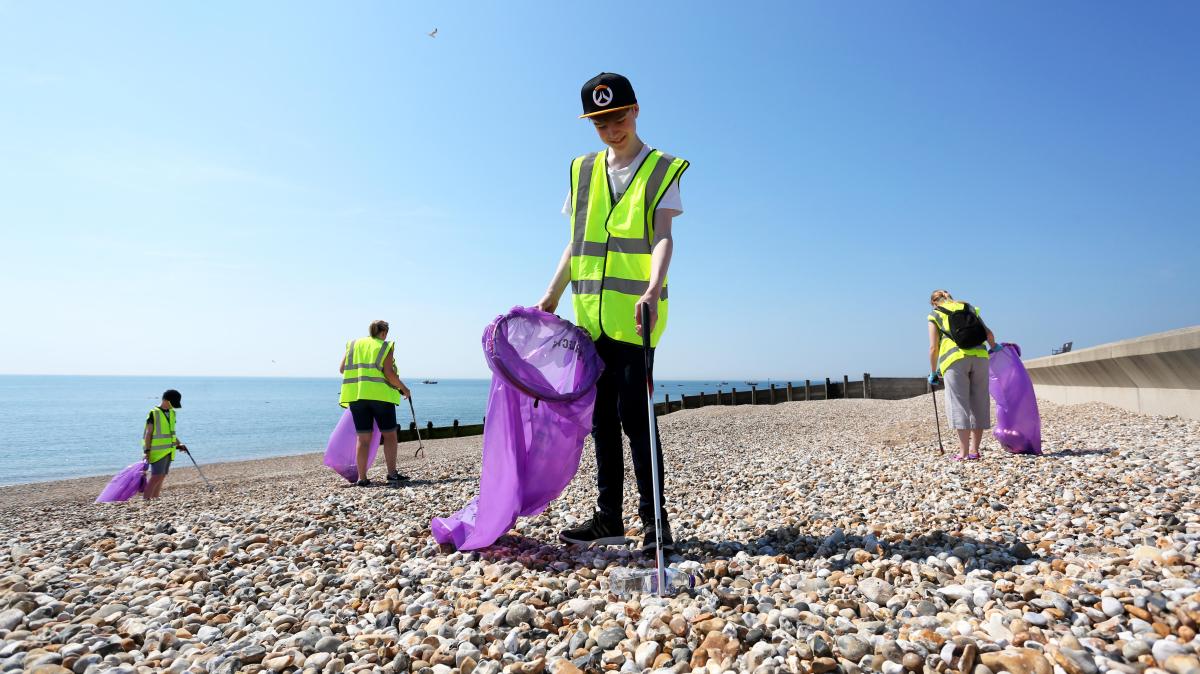Business
Campaign Encourages Tourists to Reduce Litter in Nature

Efforts to encourage tourists to manage their waste responsibly are gaining momentum, as litter in public spaces becomes an increasingly visible problem. Recent findings reveal a concerning trend: 90 percent of urban and rural sites surveyed by Keep Britain Tidy over the past decade contain litter. Only nine out of every 100 locations in England checked in the latest survey were found to be free of refuse.
The impact of litter extends beyond aesthetics, affecting wildlife and local ecosystems. A walk through the countryside or a day at the beach can be marred by discarded items such as plastic bottles, fast food wrappers, and even dog waste bags. A recent experience on a five-mile walk in Norfolk highlighted this issue, with prominent brands like Costa, KFC, Lucozade, Starbucks, Ginsters, Walkers, Tesco, and McDonald’s represented along the verges. The sight of these brands associated with litter raises questions about corporate responsibility and consumer habits.
According to data from businesswaste.co.uk, more than two million items of litter are discarded daily in the UK. A staggering 70 percent of this litter consists of food packaging and wrappers. While many focus on plastic waste, other sources indicate that cigarette butts remain a significant concern, with an estimated five trillion being discarded worldwide each year.
Addressing the Litter Crisis
Various campaigns are underway to combat littering and promote responsible tourism. Initiatives aim to incentivize visitors to keep natural spaces clean, emphasizing the importance of personal responsibility in maintaining the environment. By encouraging actions such as taking litter home or using designated disposal facilities, these campaigns seek to foster a culture of respect for nature.
Local authorities and environmental organizations are working together to implement solutions that target the root causes of littering. Strategies include increasing the number of waste disposal bins in popular tourist areas, enhancing public awareness campaigns, and coordinating clean-up events that engage communities and visitors alike. By making it easier for individuals to dispose of waste properly, the hope is to reduce the prevalence of litter in scenic locations.
In addition to practical measures, the role of education cannot be understated. Schools and community groups are increasingly incorporating environmental education into their curriculums, teaching children and adults alike about the impact of litter on wildlife and the environment. Informed individuals are more likely to take action to prevent littering and promote sustainable practices.
Ultimately, addressing litter is a shared responsibility that requires cooperation from tourists, local businesses, and government entities. By raising awareness of the litter crisis and encouraging responsible behavior, there is potential for significant change. The health of natural spaces depends on collective efforts to keep them clean and inviting for future generations.
-

 Health3 months ago
Health3 months agoNeurologist Warns Excessive Use of Supplements Can Harm Brain
-

 Health3 months ago
Health3 months agoFiona Phillips’ Husband Shares Heartfelt Update on Her Alzheimer’s Journey
-

 Science1 month ago
Science1 month agoBrian Cox Addresses Claims of Alien Probe in 3I/ATLAS Discovery
-

 Science1 month ago
Science1 month agoNASA Investigates Unusual Comet 3I/ATLAS; New Findings Emerge
-

 Science4 weeks ago
Science4 weeks agoScientists Examine 3I/ATLAS: Alien Artifact or Cosmic Oddity?
-

 Entertainment4 months ago
Entertainment4 months agoKerry Katona Discusses Future Baby Plans and Brian McFadden’s Wedding
-

 Science4 weeks ago
Science4 weeks agoNASA Investigates Speedy Object 3I/ATLAS, Sparking Speculation
-

 Entertainment4 months ago
Entertainment4 months agoEmmerdale Faces Tension as Dylan and April’s Lives Hang in the Balance
-

 World3 months ago
World3 months agoCole Palmer’s Cryptic Message to Kobbie Mainoo Following Loan Talks
-

 Science4 weeks ago
Science4 weeks agoNASA Scientists Explore Origins of 3I/ATLAS, a Fast-Moving Visitor
-

 Entertainment4 months ago
Entertainment4 months agoLove Island Star Toni Laite’s Mother Expresses Disappointment Over Coupling Decision
-

 Entertainment3 months ago
Entertainment3 months agoMajor Cast Changes at Coronation Street: Exits and Returns in 2025









